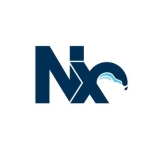What is our primary use case?
For my company, we require a CI server that's very flexible. Our bills are simple, almost template-based, however, we need to be able to deploy to almost any platform, basically whatever the customer could end up using, whether it be Windows, Mac, Android, and even mobile or tablets, et cetera. We can do it with this solution.
It needs to be simple because right now as I am the only IT person knowledgable of infrastructure on the team. If we need to build a pipeline, it needs to be simple enough that the rest of the team would be able to understand and work with it.
How has it helped my organization?
The solution has been fantastic for our organization due to the fact that we do not need a designer having to build the product. We don't need to figure out how to deploy it either. It's created improved efficiencies which have saved us time and expense.
What is most valuable?
TeamCity is very useful due to the fact that it has a strong plug-in system.
It's fantastic how simple it is to set up a pipeline. You don't need to be a technical user to understand the process and make it work and to create and build steps within the pipeline.
What needs improvement?
Harness stuck out to me due to the fact that it looked like testing and deployment was very simple and out of the box. TeamCity it definitely isn't plug and play. It's not a few clicks and you're done. It takes a bit more work.
If TeamCity could create more out of the box solutions to make it more user friendly and create more use cases, that would be ideal.
I would like it if they had a better system for copying or editing what has already been created. Right now it's either too simplistic, or you have to go through several steps just to delete something and to copy something that either does a whole copy or almost nothing. There is no in-between. You can't choose how much of something you take. I would prefer if there was more of, "okay, copy all of this, but leave out these steps." That would just make things a lot faster.
Buyer's Guide
TeamCity
June 2025
Learn what your peers think about TeamCity. Get advice and tips from experienced pros sharing their opinions. Updated: June 2025.
860,825 professionals have used our research since 2012.
For how long have I used the solution?
We've been using the solution for about a year now.
What do I think about the stability of the solution?
The solution is reliable. I don't recall bugs or glitches. It doesn't crash. It's stable.
What do I think about the scalability of the solution?
The solution is scalable. If an organization needs to expand it, it's possible to do so.
Currently, we have 10-12 users on the solution. These include the creative design team, software engineers, and project managers.
How are customer service and support?
The technical support is good. It's forum based. You post on their websites. You don't really create a ticket and you don't call anyone. You post on their website someone will help you by answering your question there. Then, everyone can also see the answer.
How was the initial setup?
The solution is a little bit complex. It's not quite straightforward. You have to set up servers and agents. Essentially, you need three computers to get up and running.
What about the implementation team?
We did not use an integrator or consultant to assist us with the deployment. We managed the process by ourselves.
What's my experience with pricing, setup cost, and licensing?
The licensing costs depend on what you use the solution for, however, it's free to start and you get up to three agents for free. If you want to do more than a hundred builds or a hundred different setups, then you have to pay more or start paying.
It's a Freemium model. Once you pass the free stage, it can cost anywhere from a few hundred to a few thousand dollars per year.
Which other solutions did I evaluate?
We're currently looking at Harness, which seems to have a few more out of the box features that we need, so we are considering either integrating the two together, or switching over entirely.
What other advice do I have?
We're just a customer. We're using the most up to date version of the solution currently.
TeamCity is our main continuous integration tool, however, it is deployments that we were looking into improving. With Harness I saw that the deployment process was very polished. And at this point I was wondering if there was any interactivity between the two solutions, or just what would be the benefits of just switching completely to Harness. We're currently researching that now.
I'd advise other organizations to do a lot of research before you begin creating anything.
The solution needs a lot of maintenance in the sense that you need to understand all the different pieces. You need to be able to look at the servers and the agents, and, if you're going to implement anything new, you'll need to understand it is going to take a while to get it right.
I'd rate the solution eight out of ten.
Disclosure: My company does not have a business relationship with this vendor other than being a customer.

















Thanks for the information!